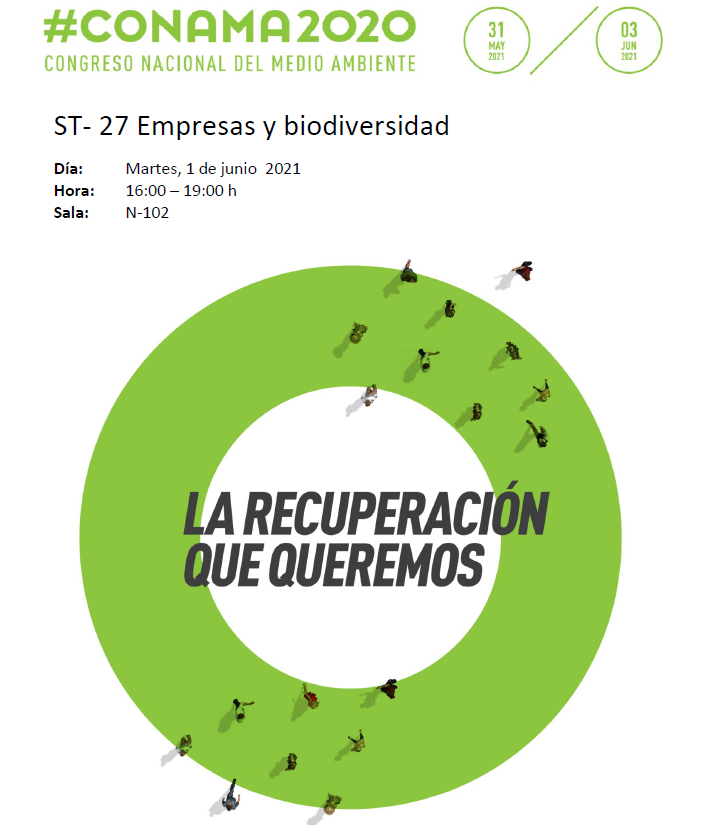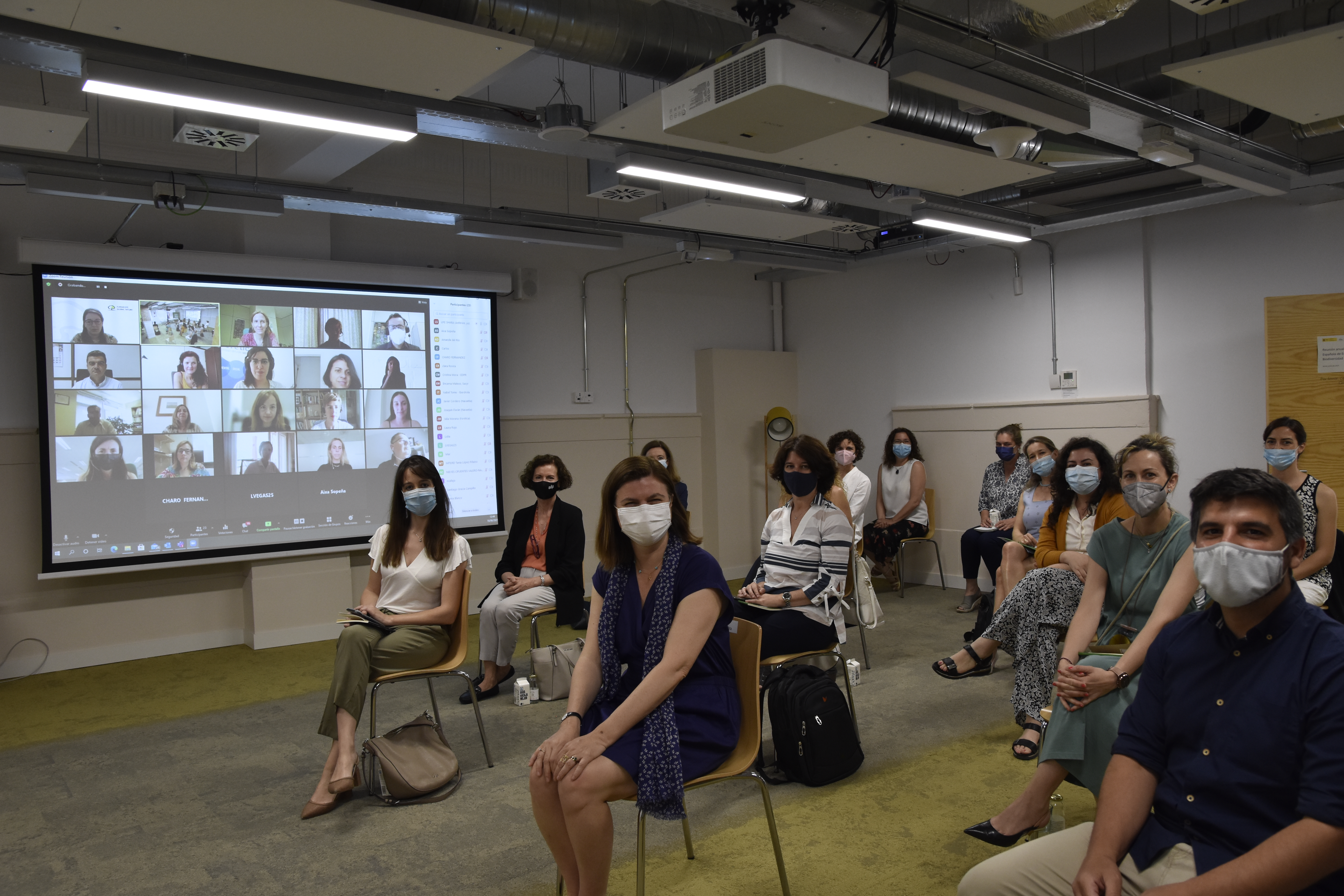Geneva 2022 preparatory meetings pave the way for consensus on greater ambition and progress on biodiversity

Geneva hosted the negotiation sessions prior to COP 15 of the Convention on Biological Diversity on 14 and 29 March 2022. This work has been a continuation of the sessions of the twenty-fourth meeting of the Subsidiary Body on Scientific, Technical and Technological Advice (SBSTTA 24), the third meeting of the Subsidiary Body for Implementation (SBI 3) and the third meeting of the Open-ended Working Group on the Post-2020 Global Biodiversity Framework (WG2020-3).
The talks held in the Swiss city have highlighted the need to move forward in the negotiations in order to reach key agreements at COP15, including, in particular, the adoption of a new global framework for the next decade, to be agreed on the basis of the approach that emerged from Aichi, where biodiversity loss is no longer considered only an ethical issue. to be seen as an economic, social and intergenerational issue.
Also, progress has been made in defining the global goal: to reverse the loss of biodiversity by 2030 and recover all that has been lost by 2050. This will involve halting biodiversity loss and restoring damaged ecosystems to return the planet to a future similar to the one envisioned.
To achieve this, this new post-2020 Global Biodiversity Framework will require a commitment from all stakeholders, not just Parties. The actions necessary to achieve the goals that are decided to be achieved will be monitored through a series of indicators that will reflect their progress and will allow decisions to be adapted to ensure that they are met on time.
In this line of action, the EU has defended its well-known position of committing to achieving a new ambitious global framework, with specific objectives and targets, and with effective implementation mechanisms, and which guarantees the full integration of biodiversity in all sectoral policies and areas of society.
Thus, its commitment to achieving the protection of 30% of land and sea surfaces and their effective management is reiterated; strengthening ecological connectivity; ecological restoration of ecosystems; marine and coastal biodiversity; strengthening synergies between biodiversity and climate change; the protection and conservation of pollinators; the fight against invasive alien species; or the fight against illegal wildlife trafficking; among many other issues.
As for the 30*30 Initiative, the majority support of the Parties stands out, with more than 90 countries committed, which have signed the High Ambition Coalition for Nature and People, ensuring that they will work to protect 30% of the world’s land and sea surface. Here, it is especially relevant, not only the commitment to achieve this objective, but that it is done by applying quality, effective and sustainable management, also guaranteeing ecological connectivity between spaces.
Companies, as key stakeholders in the process, are committed and have a decisive role to play in contributing to change. In fact, numerous business entities and associations have been present at the meetings and have expressed their interest in this issue and put forward concrete proposals. The number of companies that understand that their success comes from protecting the natural environment has been increasing, as shown by the Nature is Everyone’s Business call to action signed by more than 1,100 entities. During these preparatory sessions for COP 15, they have continued to insist on the need to postulate clear objectives, which are also measurable and tangible and that the achievement of their objectives will depend on the reinforcement of targets 15 and 18 of the post-2020 Framework for Biodiversity.
In relation to target 15, which requires all companies to assess and report on their dependencies and impacts on nature, the role of governments was discussed, which should promote and facilitate these objectives for companies and establish relevant and necessary regulations to protect the environment and biodiversity. All companies, regardless of their public or private sector membership and their size, must work to progressively reduce their negative impact and move towards a sustainable model. This is especially important since it has been estimated that more than half of the global economy depends directly on nature.
With respect to target 18, the aim is to redirect or eliminate incentives that are harmful to biodiversity, for which the initial draft under negotiation proposes to reduce them by an approximate amount of 500,000 million dollars per year. On the other hand, economic and regulatory incentives with a positive or neutral impact on biodiversity must be enhanced. Currently, the value of economic items aimed at repairing environmental damage is estimated at 700,000 million dollars per year. At the Geneva meetings, the need to redirect this financing has been raised, so that it is used to promote and develop new sustainable and reliable business models, as well as to promote regulation to encourage the active financial participation of the private sector to complement public sector financing.
Sectors such as agriculture, infrastructure and forests, as well as their value chain, need government-led and government-led renewal, putting nature at the centre of decisions. Compliance with these agreements would also be a great positive stimulus for the Sustainable Development Goals (SDGs), as 14 of the 17 SDGs are directly or indirectly related to nature. The agreements reached on the issues that still generate controversy between the Parties, together with an increase in support for research and an increase in the speed of decision-making and its subsequent implementation of actions, would make it possible to achieve the main purpose: the protection of biodiversity.
Between 21 and 26 June 2022, Nairobi (Kenya) will host the last round of preparatory meetings and where it is expected to agree on the final text proposal for the 4 goals and 21 targets that will be negotiated and finally approved at the 15th Conference of the Parties to the Convention, in Kunming (China), in the third quarter of 2022.




